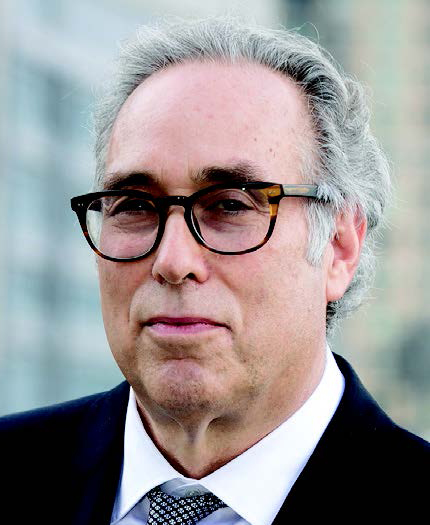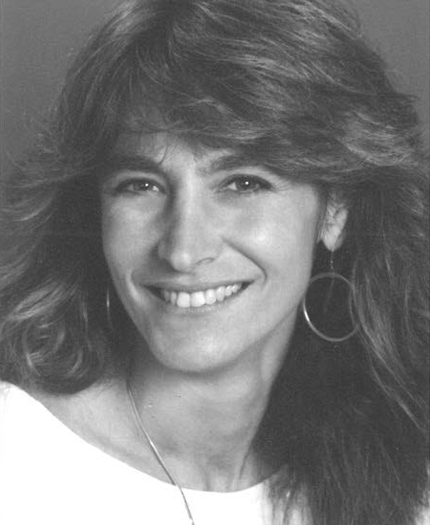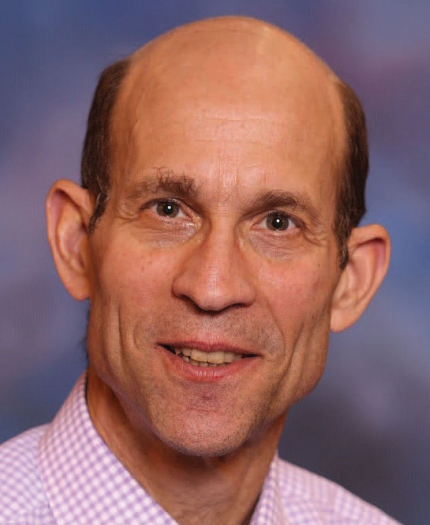


The inauguration of the James A. Shayman and Andrea S. Kevrick Professorship in Translational Medicine took place on July 24, 2019. The endowment honors an accomplished University of Michigan physician scientist whose many contributions to clinical care, research, and medical
education have had a profound influence on Michigan Medicine for three decades, and his late wife who designed beautiful, functional public gardens and spaces that have lasting impact on the adults and children who encounter them.
James A. Shayman, MD and Andrea S. Kevrick

James A. Shayman, MD, was born and raised in the Chicago, Illinois area. He attended Cornell University in Ithaca, New York, where he received a BA in philosophy. Planning to pursue graduate studies in philosophy, a memorable conversation with his father redirected his focus.
“I thought medicine would be an interesting career, but quite frankly I had no idea what medicine was all about,” says Dr. Shayman. “As an undergraduate I had professors who studied with renowned philosophers and emphasized asking interesting and important questions, and being able to communicate in as clear and cogent a fashion as possible.”
And, it was those skills that were critical to his career. Dr. Shayman spent the next decade at Washington University in St. Louis, Missouri, where he earned his medical degree in 1980, followed by fellowships in nephrology and pharmacology. He joined the university as an instructor in 1985. The following year, Dr. Shayman joined the faculty at the University of Michigan as an assistant professor of internal medicine. He rose through the ranks to professor in 1997, and was jointly appointed as professor of pharmacology in 1997.
“It was an exciting time to come into a department when there was tremendous energy and commitment to research and supporting physician-scientists,” says Dr. Shayman. “I began scientific collaboration with Norman Radin, PhD, who was an outstanding neurochemist, that led to more than 30 years in studying glycolipid metabolism and the treatment of storage diseases associated with excess of glycolipid accumulation.”
It was that tenacity that resulted in the development of eligustat, the first stand-alone oral therapy for Gaucher disease. Eligustat is the first novel chemical entity to emerge from U-M beginning as a concept and ending with FDA approval.
“Norm passed away at 90 in 2010,” Dr. Shayman says. “It was very satisfying to know that he was aware that his theory of substrate reduction for the treatment of lysosomal storage disease was proven prior to his death.”

Dr. Shayman’s move to Ann Arbor also opened an important chapter in his personal life when he met Andrea Kevrick, whom he married. Ms. Kevrick was born and raised in St. Louis. She received her undergraduate degree in architecture from Washington University and her master’s degree in landscape architecture from the U-M School of Natural Resources and Environment. She founded Insite Design Studio, Inc., and found success throughout her career. She was the principal landscape architect for major projects at U-M, around Ann Arbor, and in Michigan at large. Examples of her work can be seen at Ann Arbor City Hall, the Ann Arbor libraries, city rain gardens, and the U-M W.K. Kellogg Eye Center sensory garden. She served as an adjunct faculty member in the School of Natural Resources and Environment, teaching site design and rain water management to emerging landscape architects.
"Andrea brought a lot of joy and more than a few interesting experiences into my life,” says Dr. Shayman. “She reminded me not to take my life so seriously. She was always extremely supportive of what I was doing, but it was important to come home from work and interact with someone who had a completely different world view. She was a wonderful reality check.”
Dr. Shayman and Ms. Kevrick had been married 17 years at the time of her death from ovarian cancer in April 2015.
Today, when not working, Dr. Shayman spends time traveling with his wife, Robin Paris. He has three daughters: Rebecca, a psychologist; Ellie, a teacher; and Malory, a horse rescuer. His son, David, who passed away in 2007, was a graduate of U-M and had a successful career in music.
“I take pride watching trainees come into our program with admittedly varied backgrounds and emerge as highly competent physicians,” says Dr. Shayman. “Part of the satisfaction of having an endowed professorship that bears my name is knowing that there will be a legacy supporting physician-scientists who will pursue important questions long after I am gone.”
Richard J. Auchus, MD, PhD

Richard Joseph Auchus, MD, PhD, was born and raised in Totowa, New Jersey. His interest in science was sparked early as he followed the NASA Apollo program.
“I was really intrigued by that stuff,” says Dr. Auchus. “But in my sophomore year in high school, I took my first chemistry course and I realized I loved that field the most.”
He enrolled in the Massachusetts Institute of Technology on a U.S. Air Force ROTC scholarship. Dr. Auchus earned his medical degree and PhD in pharmacology at the Washington University School of Medicine in St. Louis, Missouri. He became interested in enzyme function and biochemistry during his undergraduate studies and sought out enzymologists in the MD/PhD program. There, he met his future thesis advisor, Douglas F. Covey, Ph.D., the Andrew C. and Barbara B. Taylor Distinguished Professor of Psychiatry and professor of developmental biology/pharmacology and anesthesiology.
“Dr. Covey had a deep knowledge of steroid chemistry,” says Dr. Auchus. “He got me to look at the big picture and to not cut corners. He gave me the freedom to pursue ideas and we had some pretty cool papers out of that.”
It was a pilot project in the Covey laboratory related to inositol phosphate turnover that led to his first collaboration with James A. Shayman, MD, the Agnes C. and Frank D. McKay Professor and professor of pharmacology and internal medicine at the University of Michigan.
“I was a chemist and Jim was a clinical nephrology fellow in the lab across the hall,” Dr. Auchus says. “It was fun because through him, I developed an appreciation for the clinical problem that he was studying and applied my chemistry background. Even back then I recognized his determination to solve problems.”
Dr. Auchus completed a residency in internal medicine at the University of Iowa. As part of his service with the Air Force, his endocrinology fellowship was at the Lackland Air Force Base Wilford Hall Medical Center, associated with the University of Texas Health Sciences Center in San Antonio, where he served as staff physician. He moved on to the University of California, San Francisco, for postdoctoral research training in pediatric endocrinology and was an assistant research endocrinologist there from 1995-1999. He then became an assistant professor of internal medicine at the University of Texas Southwestern Medical Center at Dallas in 1999, and was named professor in 2008. He joined the faculty at the University of Michigan in 2011 as a professor of internal medicine in the Division of Metabolism, Endocrinology & Diabetes (MEND) and director of the MEND fellowship program. In 2019, Dr. Auchus became section chief at the VA Ann Arbor Healthcare System.
“At the time U-M recruited me, there were the beginnings of a very good adrenal program,” he says. “There was a diverse group of experts and it was growing. Now, we have a vibrant program in adrenal disease and steroid biosynthesis. I think most people would say we have the best in the country.”
Dr. Auchus’ work has primarily included translational research into better steroid biomarkers and therapies for managing 21-hydroxylase deficiency, and steroid metabolism in prostate cancer.
“I am a translational investigator, so I want to use my scientific background to develop strategies for rare diseases and get new treatments to the patients,” says Dr. Auchus. “Helping design studies and watching that data come back; seeing the benefits before our eyes — both chemically and biochemically — for the first time and making those things available for people across the country, is most gratifying.”
He also takes his job as a teacher seriously.
“You have to be an honest teacher,” Dr. Auchus says. “There have been times I’ve thought, ‘That explanation can’t possibly be right.’ and I will tell the students, that is what the textbook says, but I don’t agree, so we need to study it further. We have to get know the field better, realize the gaps, and inspire people to pursue science.”
When Dr. Auchus is not working, he spends time with his wife, Mary Lou, and their children, Nadia, Gabriella, and Gregory. He and his brother, Alexander Auchus, MD, of Mississippi, fish together, and his mother, Theresa, lives near the family home in Ann Arbor.
On being named the James A. Shayman and Andrea S. Kevrick Professor of Translational Medicine, Dr. Auchus says, “My hope is to improve the health of adults with rare genetic endocrine diseases. We want them to be able to just take the medicine and go on with their day. We want to make that possible.”
View the inauguration program book.
Return to the Division of Metabolism, Endocrinology & Diabetes.



